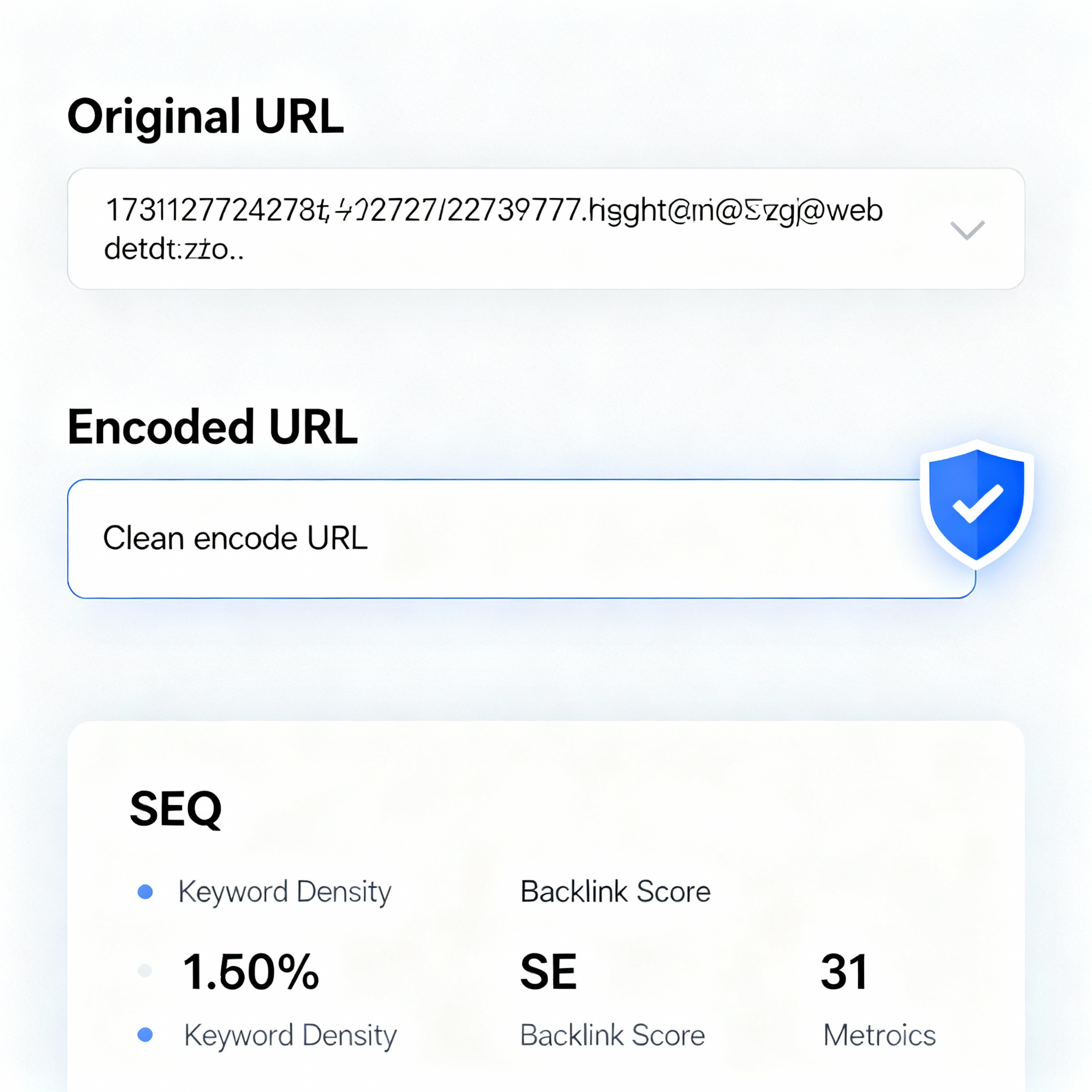
URL encoder
Created on 19 October, 2025 • Converter tools • 79 views • 2 minutes read
A URL encoder is an essential web utility that helps ensure data integrity, security, and compatibility when transferring information
A URL encoder is an essential web utility that helps ensure data integrity, security, and compatibility when transferring information on the internet. Whether you’re a developer, marketer, or SEO specialist, using a URL encoder transforms unsafe or reserved characters into a standardized format that can be safely interpreted by browsers, search engines, and server applications. Let’s look at what a URL encoder does, why it’s vital for SEO and usability, and how to leverage its benefits for superior website performance.
What is a URL Encoder?
Definition and Purpose
A URL encoder converts special characters in text (such as spaces, quotes, ampersands, and non-ASCII symbols) in a URL into percent-encoded values. For example, a space is encoded as %20, and an ampersand & becomes %26. This process—also known as percent encoding—ensures URLs are valid according to web standards (RFC 3986), preventing misinterpretation, errors, or security risks during web requests and communications.
Key Benefits and Use Cases
Data Integrity and Security
- Prevents misinterpretation of reserved characters: Unencoded spaces and symbols can interfere with server commands or break links.
- Blocks injection attacks: Encoding user-supplied data reduces the risk of exploits like cross-site scripting (XSS) or SQL injection.
- Secures form submissions and dynamic URLs by eliminating ambiguity and maintaining structural consistency.
Cross-Platform and International Compatibility
- Ensures URLs work across all browsers, devices, and content management systems, regardless of language or regional settings.
- Facilitates sharing of URLs containing international characters, ensuring global reach and accessibility.
- Standardizes output for APIs, social media, and email marketing campaigns.
SEO Benefits of URL Encoding
Improved Crawlability and Indexation
- Search engine bots can accurately crawl and index pages with encoded URLs, avoiding crawl errors caused by improper characters.
- Prevents broken links and duplicate URLs—key factors for maintaining high rankings and site authority.
- Encoded URLs support the safe and reliable use of query parameters for sorting, filtering, or campaign tracking.
Enhanced User Experience and Link Sharing
- Properly encoded URLs load quickly, display correctly, and work reliably for all users, boosting engagement and retention.
- Clean, error-free links foster trust and encourage sharing on social platforms, email, and messaging apps.
Enabling Advanced SEO Strategies
- Encoded URLs make tracking campaign parameters with UTM codes and dynamic values simple and effective, supporting detailed analytics.
- Facilitates canonicalization and redirection strategies, ensuring consistent URLs for optimal ranking.
How to Use a URL Encoder
- Copy and paste the text or full URL into the tool's input field.
- Click encode; the tool outputs a percent-encoded URL, ready for use in HTML, email, forms, or JavaScript.
- Decode URLs for human readability or processing by reversing the operation.
Modern URL encoders may accept bulk input, automate encoding for all page links, or integrate with CMS platforms and development environments for streamlined workflows.
Best Practices
- Always encode dynamic or user-generated content in URLs, especially for e-commerce, forms, and custom CMS implementations.
- Ensure consistency across internal and external links, avoiding mismatches that cause duplication or indexation issues.
- Monitor site analytics for crawl errors related to unencoded URLs; fix issues promptly to maintain SEO ranking and user trust.
Conclusion
A URL encoder is indispensable for website reliability, user experience, and SEO performance. By converting unsafe characters into a secure, web-friendly format, you eliminate link errors, protect your site, and support global reach. For any website owner or SEO strategist, routinely using URL encoding is a best practice that drives discoverability, engagement, and long-term search success.
Popular posts
-
GIF to BMPImage Manipulation tools • 583 views
-
GIF to WEBPImage Manipulation tools • 462 views
-
GIF-to-PNGImage Manipulation tools • 363 views
-
SHA-3/512 generatorConverter tools • 292 views
-
GIF to JPGImage Manipulation tools • 257 views